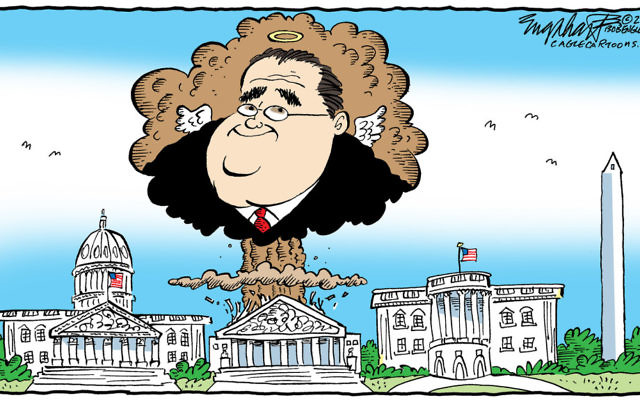Scalia’s Death Alters Math on Abortion, Union Dues
By Randy Kessler
Justice Antonin Scalia, perhaps the strictest “strict constructionist” U.S. Supreme Court justice, died Saturday, Feb. 13. His legacy will almost certainly be that in every decision he made or in which he participated, he tried his best to apply the Constitution as he believed the original drafters intended it to be applied.
He was very vocal about this. Many of his detractors claimed that he needed to change with the times, that the Constitution was outdated on certain issues. But he saw things simply and clearly: It was his mission to understand and to enforce whatever the original drafters intended (or perhaps would have intended?).
An immediate impact may be felt in cases such as Whole Woman’s Health vs. Cole, No. 15-274, in which a conservative majority led by Scalia may well have determined that a Texas law allowing strict medical restrictions on abortions could have in effect provided a state a way to ban many or most abortions. This case could have been the closest the Supreme Court had ever come to overturning Roe vs. Wade (the case that legalized abortions).
In Friedrichs vs. California Teachers Association, union rights are at stake on the question of whether states may require union membership as a condition of employment. Scalia seemed to be on track to help overturn current law and not allow states to require union membership (and agency fees) as a condition of membership. Unions’ ability to require fees from everyone at the job may now remain.
In Evenwel vs. Abbott, voting rights could be affected, and many other cases are now certain to engender much discussion, including a case covering religious organizations and contraception under the Affordable Care Act (Obamacare).
There will certainly be an interesting debate and many story lines about whether President Barack Obama will be able to appoint a successor or whether the Senate will block his attempt to do so while hoping for a more conservative (Republican) president to take office in January.
But until then, the interesting thing is that there are eight U.S. Supreme Court justices, and to paraphrase a baseball term, a tie goes to the appellee. That is, those seeking to overturn a law or a decision will need a 5-3 majority instead of a 5-4 majority (unless a justice abstains or recuses from a case) because a 4-4 decision is a victory for the appellee.
The U.S. Supreme Court as the final arbiter or interpreter of law is a vital institution. Whether one agrees with its rulings or not, we must have the rule of law, and we often need closure and resolution. Getting it right, accurately applying the U.S. Constitution and maintaining the confidence of the public will continue to be vital, and nothing suggests that the current court will do anything other than continue this quest.
Who will replace Antonin Scalia? Many believe that he can never be replaced and that he was one of the greatest scholars ever to serve on the court. They are surely hoping his replacement will be of a similar mind-set. Others, however, are hoping for a less conservative-minded judge to hold the seat.
As the Chinese proverb foretells, “May you live in interesting times.” We certainly do.
Randy Kessler is the founding partner of the family law firm Kessler & Solomiany (www.ksfamilylaw.com) in downtown Atlanta, a former chairman of the American Bar Association’s Family Law Section, and the author of “Divorce: Protect Yourself, Your Kids and Your Future.”





comments